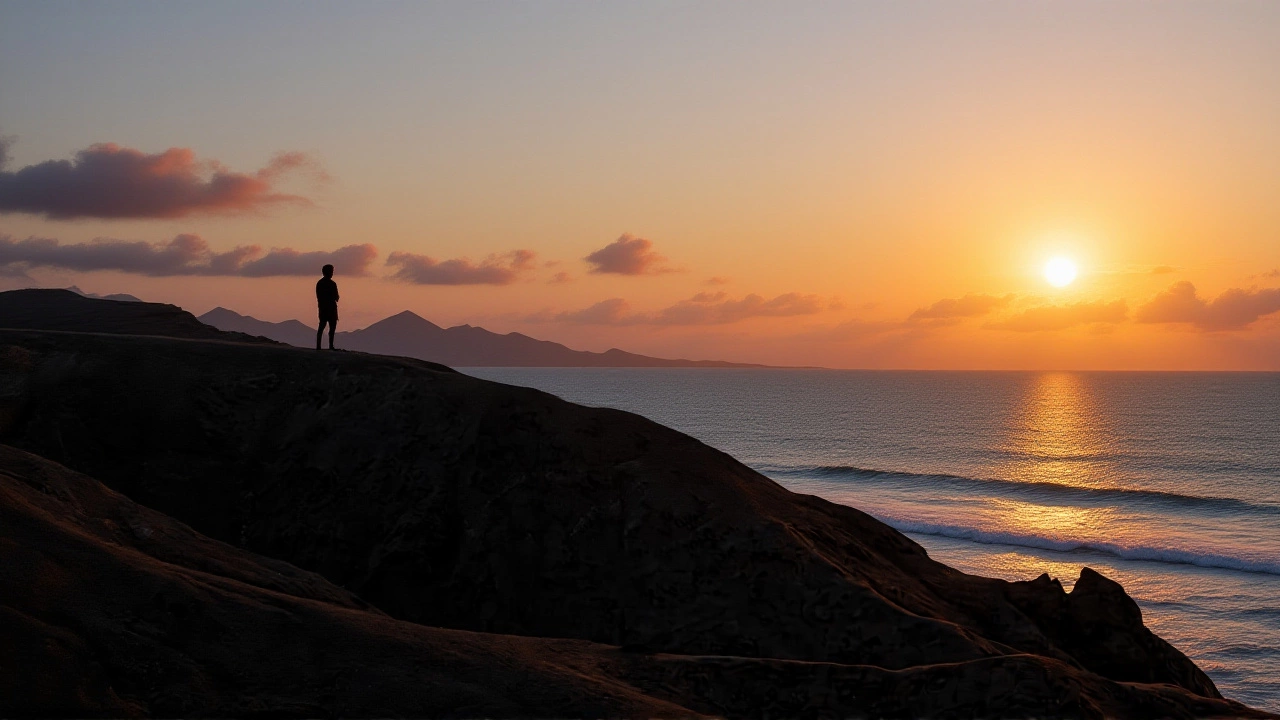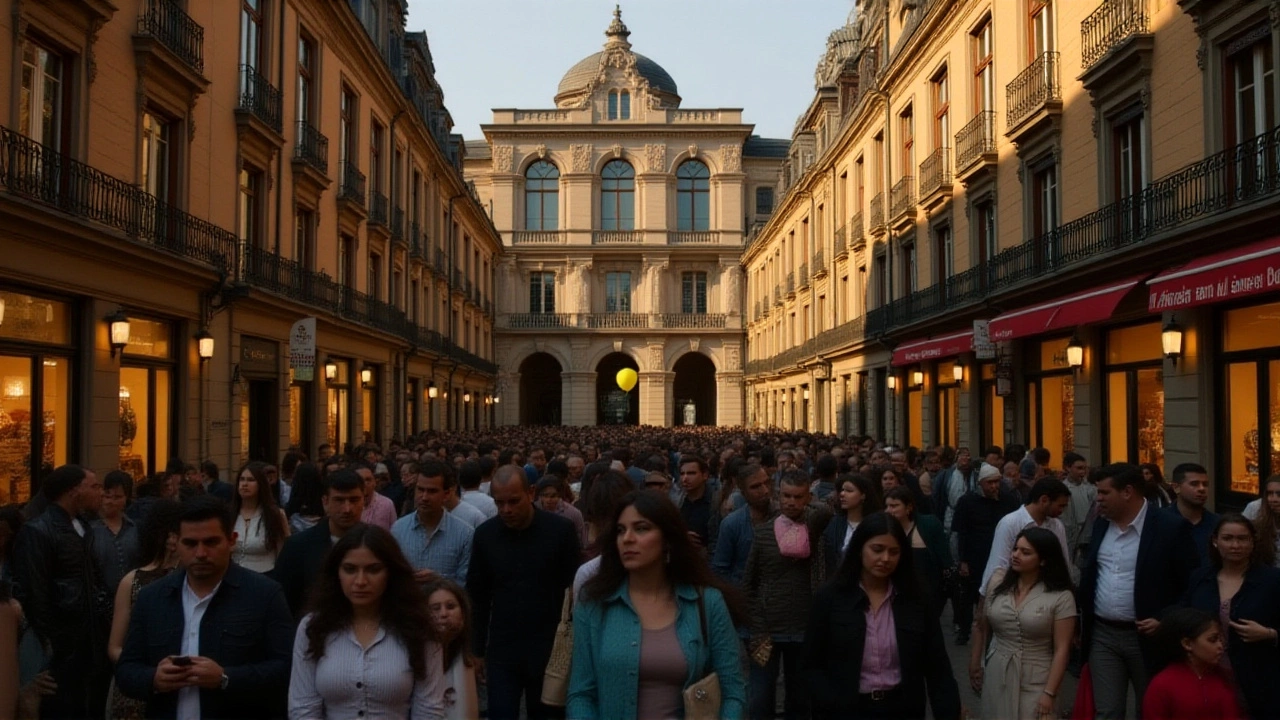When Fodor's released its 2026 "No List" in late November 2025, it didn’t just name names—it sounded an alarm. Eight destinations, from icy Antarctica to the sun-baked shores of Mombasa, were flagged not for safety or politics, but because tourism has crossed a line. This isn’t about avoiding places because they’re "too popular." It’s about recognizing when popularity becomes destruction. The Fodor's editors were clear: "It’s not a boycott. It’s a wake-up call."
Canary Islands: When Tourism Outpaces Water and Housing
The Canary Islands—Tenerife, Gran Canaria, Lanzarote—were hit hardest by the numbers. In just the first six months of 2025, over 7.8 million visitors arrived. That’s more than 10 times the islands’ combined population. Locals in Santa Cruz de Tenerife, Las Palmas de Gran Canaria, and Arrecife are living it. Traffic on main roads? At 40% over capacity. Housing prices? Up 22% in 2024 alone. Rent now eats up more than 45% of the average local wage. And it’s not just money. Reservoirs dropped to 35% capacity last summer. People are rationing water. Meanwhile, Airbnb and similar platforms displaced 12,500 long-term rentals between early 2023 and mid-2025. Young teachers, nurses, and shopkeepers are being pushed out. Even new rules—limiting vacation rentals to 2% of housing stock in saturated zones—haven’t stopped the tide. In 2024 and 2025 alone, 87 new hotel projects got approved. Meanwhile, roads, sewage lines, and storm drains are running at 120% capacity. Hikers? Only three of 15 major trails are open. Twelve trails closed permanently after wildfires in 2024. And the Canary Island stonechat, a bird found nowhere else on Earth? Its population dropped 9% in two years.Mombasa: A Coast Under Siege
In Mombasa, Kenya, the problem is different but just as dire. This historic port city absorbs 70% of all tourists visiting Kenya’s entire 600-kilometer coastline. That’s over 1.2 million visitors a year. The result? Beaches are too polluted to swim in. Sixty-five percent of them now fail water safety tests. Near Nyali Beach, the shoreline is eroding at 2.3 meters per year—swallowing homes, hotels, and ancient dunes. At Fort Jesus, a UNESCO site built in 1593, 850,000 tourists pour in annually. The old stone walls can’t handle it. Neither can the sewage system. During the April 2025 monsoon, it collapsed. For 17 days, 12,000 residents had no trash collection. Raw sewage? Four point seven million liters a day flows into Tudor Creek. Mangroves—natural filters and fish nurseries—have died off by 40% since 2021. Local fishermen report a 33% drop in catch. Fifteen thousand people who depend on the sea now face uncertainty.Why This Isn’t Just About Beaches and Views
This isn’t the first time Fodor’s has sounded the alarm. Past "No Lists" targeted Venice, Barcelona, and Thailand’s Maya Bay. Each place saw similar patterns: overcrowding, rising costs, environmental collapse. But this time, the stakes feel higher. The United Nations World Tourism Organization projects 1.8 billion global tourist arrivals by 2030. That’s nearly double the number from 2010. And the solutions? They’re out there. Bhutan charges $200 a day to visit. Amsterdam caps short-term rentals. Machu Picchu now requires timed tickets. But in the Canary Islands and Mombasa, policy is lagging behind crisis. Activists like No Somos Souvenirs say regulations are paper tigers. "We’ve been shouting," one organizer told a local paper in October 2025. "The government keeps handing out permits."
What Travelers Can Do
Fodor’s doesn’t want you to stop traveling. It wants you to travel differently. Skip the peak season. Choose lesser-known towns. Stay in locally owned guesthouses, not international chains. Support businesses that pay fair wages and protect the environment. If you’re planning a trip to the Canary Islands or Mombasa in 2026, ask: Are you part of the problem—or part of the solution?The Bigger Picture
This isn’t just about two destinations. It’s about a global system that treats nature and communities as infinite resources. The Fodor's "No List" is a mirror. It reflects what happens when profit outpaces responsibility. And if we don’t change how we travel, more places will join the list. Maybe even your favorite.Frequently Asked Questions
Why does Fodor’s say not to visit these places if they’re beautiful?
Fodor’s isn’t saying these places aren’t worth seeing—it’s saying they’re being loved to death. The goal is to reduce pressure so locals can live and ecosystems can recover. Travelers are encouraged to visit off-season, support sustainable operators, and avoid overcrowded hotspots during peak times.
How has overtourism affected housing in the Canary Islands?
Between 2023 and mid-2025, short-term rentals displaced over 12,500 long-term housing units. In some neighborhoods, rents have climbed beyond 45% of the average local wage, forcing young professionals and essential workers to move out. Even with new rental caps, new hotel construction continues unchecked.
What’s happening to wildlife in Mombasa because of tourism?
Raw sewage flowing into Tudor Creek has killed 40% of the mangrove forests since 2021, which are critical breeding grounds for fish and crustaceans. Local fishery catches have dropped 33%, threatening 15,000 livelihoods. Coastal erosion is also destroying turtle nesting sites and bird habitats along the shoreline.
Are there any positive changes happening in these destinations?
Yes, but slowly. The Canary Islands passed a law limiting vacation rentals to 2% of housing stock in saturated zones. Mombasa’s county government has begun mapping illegal coastal construction. But enforcement is weak, and tourism revenue remains politically untouchable. Real change needs public pressure—and travelers willing to choose differently.
How does this compare to other overtourism hotspots like Venice or Barcelona?
The patterns are identical: housing crises, infrastructure overload, cultural erosion. Venice banned cruise ships in 2021. Barcelona caps tourist apartments. The difference? The Canary Islands and Mombasa are in developing economies where enforcement is weaker and alternatives for locals are fewer. The consequences are more immediate and brutal.
What should I do if I’ve already booked a trip to one of these places?
Don’t cancel—rethink. Shift your stay to the shoulder season. Stay in locally owned accommodations. Avoid rental cars; use public transit or walk. Support community-run tours. Ask businesses about their sustainability practices. Your choices can still make a difference—even in a crowded place.
